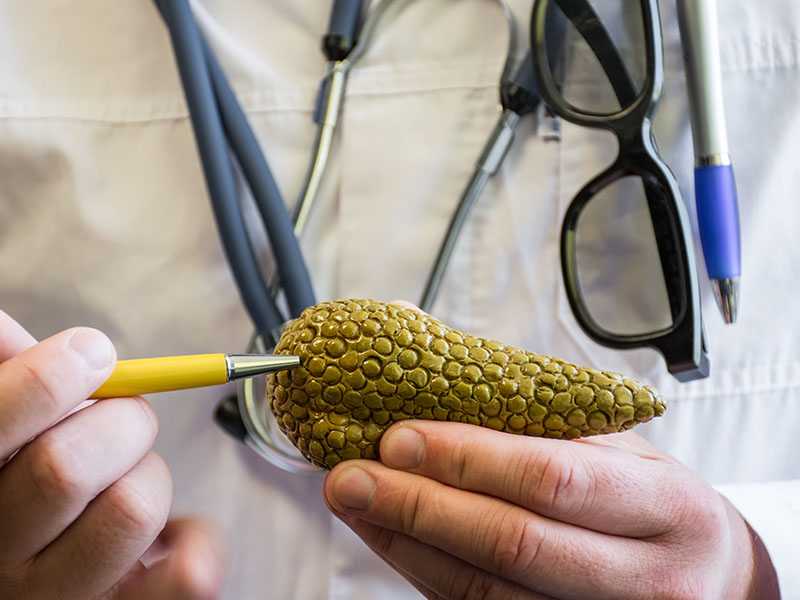The Lustgarten Foundation Opens Four Dedicated Pancreatic Research Labs
Topic: The Researchers

Leading the Way Through Research at our Four Dedicated Pancreatic Cancer Research Laboratories
Pancreatic cancer research is moving faster than ever before, and there has never been a more hopeful time for patients. Our Lustgarten-funded researchers are at the forefront of the most promising breakthroughs that are directly impacting patients and enabling some patients to live longer. In fact, the Foundation has directed close to $200 million to research to date, amounting to nearly two-thirds of the world’s private funding for pancreatic cancer research from organizations solely focused on this disease, and positioning the Foundation as the largest private funder of pancreatic cancer research in the world. We are making progress every day toward advancing early detection methods, discovering new treatments, and most importantly, creating a larger community of survivors.
To accomplish these breakthroughs and ensure more discoveries will follow, we have opened four dedicated pancreatic cancer research laboratories at Cold Spring Harbor Laboratory, Dana-Farber Cancer Institute, Johns Hopkins, and Massachusetts Institute of Technology, representing an investment to date of more than $25 million. United in the shared goal of improving patient outcomes, these laboratories are increasing collaboration between world-renowned pancreatic cancer researchers and are exploring new, promising avenues for understanding and treating this disease. Together, these facilities position the Foundation as the only non-profit in the world to have four labs devoted to pancreatic cancer research, which means more resources, time and talent are being put toward this disease, where they are urgently needed. Through these labs, the Lustgarten Foundation is ushering in a new era of research progress.
Cold Spring Harbor Laboratory: Focusing on Personalized Medicine

Dr. David Tuveson leads the Lustgarten Laboratory at Cold Spring Harbor Laboratory, designing new models of the disease and discovering novel therapeutic and diagnostic platforms to bring new options to patients more rapidly. Dr. Tuveson was the first scientist to develop a pancreatic cancer organoid – a three-dimensional cell culture system which reproduces a patient’s tumor in a dish to test it repeatedly with different drugs – and has started to demonstrate that organoids can accurately predict how a patient will respond to various therapies, offering the hope of personalized cancer treatments.
Objectives:
- Establish precision Clinical Laboratory Evaluation Program (CLEP)-certified testing of organoids to support clinical trials.
- Understand and inhibit therapeutic resistance to organoids.
- Conduct clinical trials to assess if treatment stratification will improve survival.
“There has never been a more exciting time in pancreatic cancer research. We are now taking our science into the clinic and impacting patient outcomes in real time. I want patients to know that we are making progress.”
Dana-Farber Cancer Institute: Advancing Translational Research

Under the leadership of Dr. Brian Wolpin, the Lustgarten Laboratory at Dana-Farber is a critical hub for advancing research from the laboratory to the clinic, a process known as translational research; initiating scientifically driven clinical trials; and identifying new approaches to early detection. This research will also capitalize on the large, multidisciplinary network of investigators working on pancreatic cancer, under the umbrella of Dana-Farber’s Hale Family Center for Pancreatic Cancer Research.
Objectives:
- Study the genetic composition and the driver pathways of pancreatic tumors, which will lead to personalized treatment options.
- Expand clinical trials for patients with metastatic pancreatic cancer using organoids, which allow multiple drugs to be tested in real time to identify the best course of treatment.
- Identify new blood-based and imaging markers for asymptomatic patients and new models for risk prediction to facilitate earlier detection.
“The work being done with the Foundation’s support is the main driver of progress in the field. It’s quite amazing that a single foundation can play such a transformative role. Our patients are and will be the beneficiaries of such vision and leadership.”
Massachusetts Institute of Technology: Merging Technology and Engineering

The Lustgarten Laboratory at MIT is leveraging its unparalleled expertise in cancer biology and engineering to advance pancreatic cancer research. Led by Dr. Tyler Jacks, the laboratory is studying the genetic events contributing to cancer development and examining the immune responses to the disease using molecular profiling to identify tumor mutations.
Objectives:
- Evaluate the immune system’s role in tumor development and disease progression to determine better therapies.
- Use cell profiling technologies to identify new targets for intervention.
- Produce organoids more quickly and use them to examine genes that may be responsible for tumor development and explore DNA manipulations through screenings to examine disease progression.
“We are grateful for the Lustgarten Foundation’s investment in our work as it allows us to recruit new investigators from across MIT who have never worked in pancreatic cancer before but whose tools and approaches will help us develop new treatment paradigms for early diagnosis and intervention.”
Sidney Kimmel Comprehensive Cancer Center at Johns Hopkins: Furthering Early Detection and Therapeutics

Directed by Dr. Bert Vogelstein, the Lustgarten Laboratory at Johns Hopkins is leveraging its expertise in early detection to intercept pancreatic cancer at an earlier stage, when patients may be surgical candidates, and is developing new therapeutic approaches based on genetic alterations.
Objectives:
- Increase the sensitivity (ability to correctly identify those with the disease) of CancerSEEK, a blood test to detect pancreatic cancer and seven other cancers early, and bring this blood test to the clinic. CancerSEEK has received FDA “Fast Track” status for pancreatic cancer, accelerating the approval process.
- Advance the CompCyst test, which combines clinical, radiological, genetic and protein marker information to distinguish between pancreatic cysts that can become cancerous and those that will remain benign. The Lustgarten Laboratory at Johns Hopkins is working to further develop the CompCyst test into a clinically approved test for many people harboring pancreatic cysts, which can be common amongst the general population.
- Monitor the effectiveness of immunotherapy in patients being treated for cancer by examining specific T-cells.
“Early detection is how we are going to change the statistics for pancreatic cancer patients and create more long-term survivors. We are hopeful that our research will mean that deaths from pancreatic cancer will be less common, thanks to the Lustgarten Foundation’s support.”
Make a difference in patients’ lives by donating to the Lustgarten Foundation today and supporting pancreatic cancer research. We couldn’t accomplish all that we do without you

